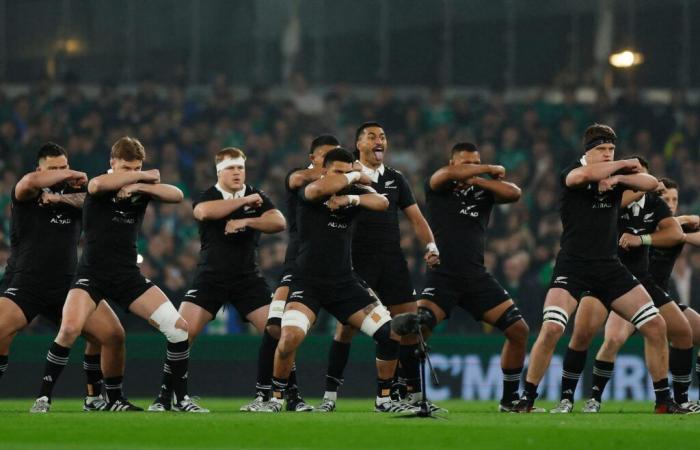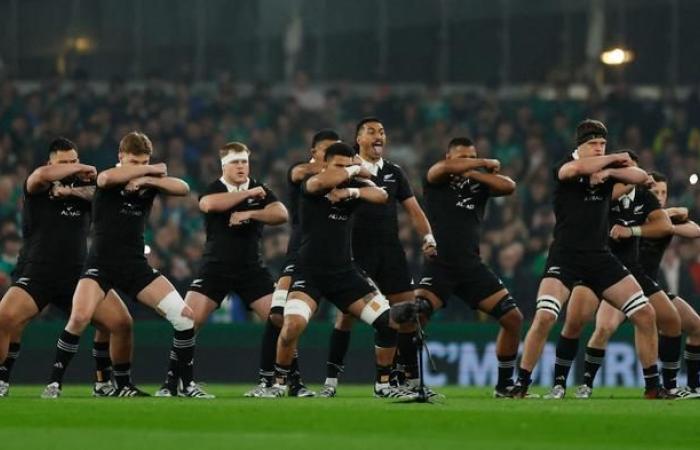Joe Marler should not return to diplomacy. Hardly used to mincing his words or his actions, the crested left pillar of the XV de la Rose (95 caps) lit a match at the start of his autumn tour, and a few weeks later, the fire was far from being over. extinct. “The haka must be removed, it’s ridiculous”slammed the player – who has since announced his international retirement – on X (ex-Twitter) ahead of the clash between England and New Zealand on November 2. If he has since backpedaled, insisted on “the context” of his diatribe, presented his apologies and clarified his remarks, the English fanciful provoked a unanimous outcry in the land of the long white cloud. From former players to New Zealand's sports minister, David Seymour, everyone has vigorously defended the haka.
Read also | Article reserved for our subscribers France – New Zealand: Louis Bielle-Biarrey, the good student of the XV of France
Read later
Saturday November 16, the fifteen All Blacks players will perform the country's traditional cultural ritual, which combines challenge and dance (“haka” means “dance”), a few minutes before facing Antoine Dupont's Blues. And all the spectators at the Stade de France are impatiently awaiting it, because like the oval ball or backward passes, the haka is integral to rugby. “We have all already done a haka in our living room or in our garden when we were young”summarized this week the third line Alexandre Roumat, at Midi-Olympique. Neo-Blue since the last Six Nations Tournament, the Toulouse player will discover on Saturday the effect of a haka before starting a match.
Still, Joe Marler's comments raise a fundamental question: beyond folklore and respect for a century-old tradition – the first haka in rugby dates back to 1905 – is it normal for a team to be authorized to intimidate its opponent? a few minutes before kick-off? Especially since opposing players do not have the right to respond in rugby union.
Because it is impossible to dissociate these “cultural challenges” – the official term used by the international rugby federation – from their warlike aspect. The haka “is not made to be loved, it is made to make adversaries trembledefended Maori cultural advisor Mana Epiha, in the New Zealand media Stuff following Joe Marler's comments. It is something that brings out the beautiful feelings of the warrior spirit of our ancestors. »
The risk of becoming “a simple one-sided spectacle”
You have 45.19% of this article left to read. The rest is reserved for subscribers.
France







